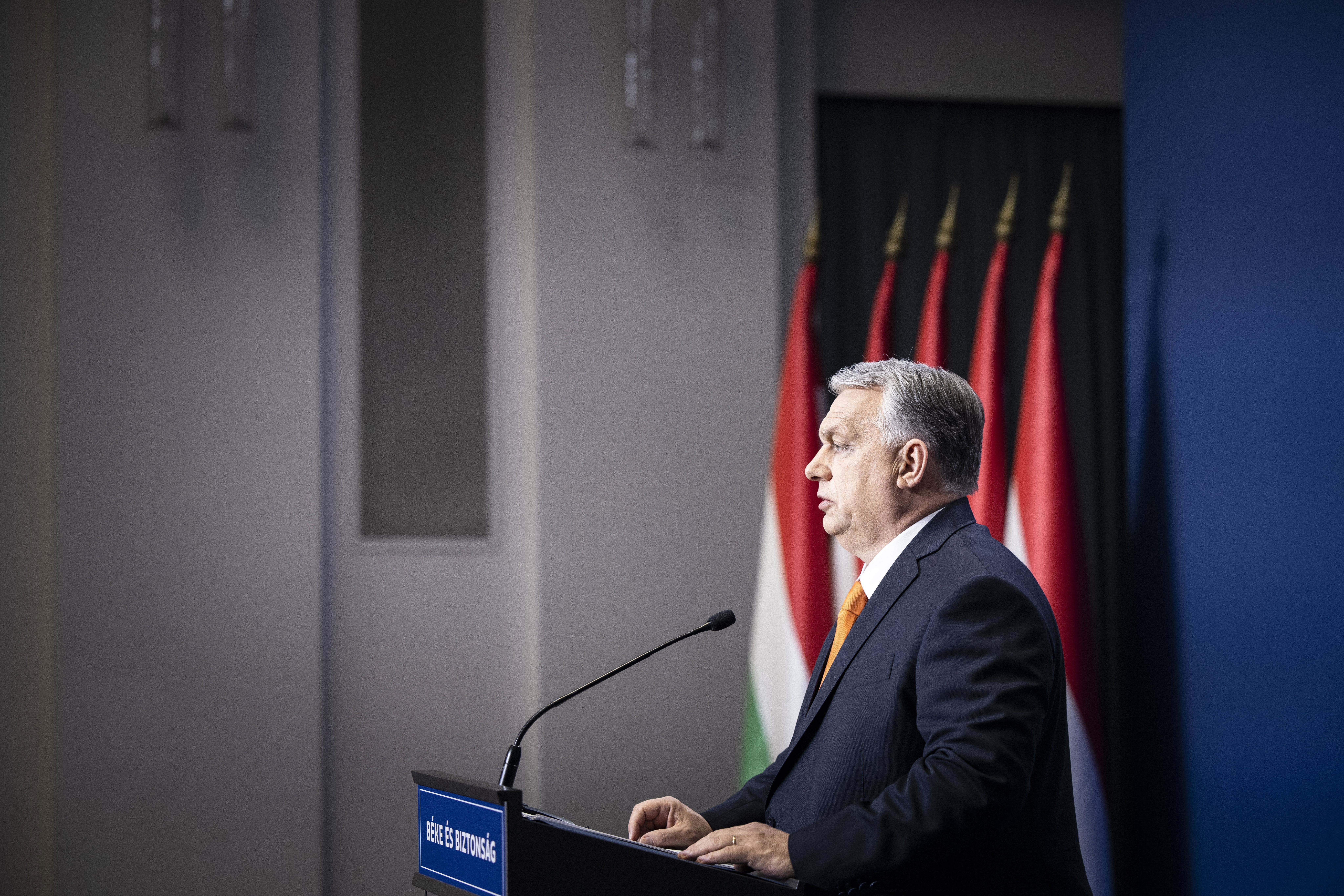This week marks one year since the election in which the Fidesz party of Prime Minister Viktor Orbán swept to another landslide victory in Hungary, securing a third consecutive term in office.
The 12 months since then have been marked by a period of relative quiet in terms of major new threats to media freedom. There have been no more takeovers of major independent media houses; no silencing of critical media through discriminatory regulatory decisions. However, far from a sign of improvement in the government’s press freedom record, this period of relative stasis is reflective, observers say, of something far more sinister: the overwhelming success of Fidesz’s decade-long campaign to muzzle critical voices and establish a government-friendly media empire.
After Fidesz secured its second term in 2018, the following years saw multiple major developments in the media market by Fidesz and its allies. In 2018, its expanding media empire was solidified under the KESMA conglomerate, a network run by Fidesz allies which included more than 500 titles. Using business allies as proxies, the ruling party also continued to engineer the takeover of independent media houses. In 2020, pro-government business interests made their move against Index, leading to its implosion and a mass resignation of journalists. In late 2020, the government-controlled media regulator then removed the country’s last remaining major radio broadcaster critical of the government, Klubrádió, from the airwaves following a discriminatory licencing decision.
In comparison, the year following the 2022 election has been quiet. The reasons for this, according to interviews conducted by IPI with Hungarian journalists and media experts, are twofold. The first stems from the high level of control and co-option of the media market that Fidesz already enjoys.
Over the past decade, the ruling party has gained an unprecedented influence over private and public media, allowing it to muzzle the independent press and distort the market to entrench a dominant pro-government narrative. The public broadcaster has long been deformed into an audio-visual propaganda tool of the government. The bulk of major print, radio and television media were acquired by business figures connected directly or indirectly to the ruling party, in some cases with the help of loans from state-controlled banks. Estimates vary, but studies identify Fidesz as being in direct or indirect control of between 70-80 per cent of the media market. This represents the most advanced model of media capture created in the European Union.
Meanwhile, the other elements of Fidesz’s media machine continued to hum in 2022. The politically-motivated allocation of government advertising budgets – the lubricant of Fidesz’ model for co-opting the press – continues unabated. High levels of control over public broadcaster Magyar Televízió remains entrenched, resulting in clear bias in their news reporting and programming. Political control over the state news agency is extremely high, with the prime minister’s press office shown to explicitly dictate coverage. At the same time, Fidesz’s influence over the Media Council, the country’s powerful media regulator, has been locked in for years to come following the appointment of its new chair on a nine-year mandate. All figures serving on the regulator have been selected by the government. The majority of local and regional media remain under the grip of business allies.
Even so, the situation for Fidesz’s media empire has not been without setbacks. Many of the changes in privately-owned media in the last year have occurred within the KEMSA network of pro-government titles, which have long received significant financial support from the government in the form of the state advertising. As inflation soared and the economic climate worsened, print editions of Figyelő weekly and Világgazdaság daily were discontinued, as well as City7 newspaper.
Outside of KESMA, the pro-government daily newspaper Magyar Hírlap and Pesti TV television channel also closed down. They were joined by 168óra, a political weekly, and Pesti Hírlap, a free newspaper distributed in Budapest. Observers speculate that with mounting costs, and as Fidesz’s priorities shift further towards the power of Facebook campaigns and social media influencers to get the party’s message out, less influential titles have been deemed expendable. Despite these obstacles, support for the dominant pro-government media remains as strong as ever.
Few targets remaining
A second and connected reason for the lack of overt government interference in the media market, observes note, is the diminished pool of independent media houses left for the government to target. Since returning to power in 2010, Fidesz has relied on business allies and oligarchs to step in and buy up independent media houses, who then fired journalists, flipped their editorial lines and aligned them with Fidesz’s messaging. One by one, large titles such as Origo and Népszabadság (later closed) were snapped up by Fidesz allies from retreating foreign owners. Of the three remaining major, independent media understood to be targets, none of their owners show signs of relinquishing control any time soon.
The first is leading television channel RTL Klub, owned by Luxembourg-based media conglomerate RTL Group. The broadcaster has long been insulated from financial pressure through its foreign-ownership and remains a market challenger for TV2, owned by a close ally of Prime Minister Orbán. RTL Klub’s sale, long eyed by figures in the pro-Fidesz business network, would spell disaster for citizen’s access to pluralistic news reporting on television. Despite persistent rumours, there have been no major indications that RTL Group is considering an imminent sale.
The second remaining bastion of independent media is Central Media Group, owned by businessman Zoltan Varga. In recent weeks, he has spoken out about being approached indirectly about a potential sale of his media assets. Any sale of the company to government-linked business interests would lead to serious trouble for the country’s largest remaining independent news website 24.hu, which is part of the media group. In November 2022, Varga was questioned by the National Tax and Customs Administration (NAV) as part of an investigation into alleged budget fraud, leading to suspicions the probe was partly aimed at increasing pressure, and his mobile phone was targeted with Pegasus spyware in 2021. Smears and attacks on Varga in pro-government media have been continuous. For now, however, the sale of Central Media Group appears remote.
The third remaining likely target is the country’s most read tabloid, Blikk, which is owned by Switzerland-based media group Ringier AG. While the newspaper’s coverage is mostly dominated by crime and celebrity news, it does report on major corruption and political scandals, drawing the ire of Fidesz on multiple occasions. As a foreign-owned media company, the newspaper also naturally falls into Fidesz’s crosshairs. Given the opportunity, government-aligned capital would likely make a move to acquire the tabloid.
With neither Ringier AG nor the other media two media owners signalling a retreat from the Hungarian market, for now such takeovers do not appear possible without major intervention. And with Budapest currently locked in a rule of law standoff with the European Commission over the release of billions of euros in EU funds, the moment may not be right for heavy-handed action. Instead, the government appears likely to enjoy its current media dominance and bide its time.

REUTERS/Wolfgang Rattay
Independent media: Starved and side-lined
While Fidesz may have temporarily taken its foot of the gas in its media capture campaign, the wider situation for independent media remains challenging. Aside from RTL Klub, the remaining independent media titles are essentially pinned back into a few areas of the market: online daily news, political weeklies and investigative journalism. While many digital platforms have pioneered new subscription-based funding models and donations are still coming in, economic isolation from the government’s bloated advertising budgets undermines their ability to expand. At the same time, journalists from these titles continue to be blocked from receiving interviews from government politicians and barred from attending some press events. Many of the hard-hitting investigative reports are ignored by the public media and not picked up by the pro-government press. While a recent legal ruling siding with political weekly HVG in its battle for access to public information is notable victory, overall the climate for Freedom of Information (FOI) remains highly problematic.
To pile further pressure on the remaining independent media, recent months have seen a coordinated smear campaign aimed at their foreign funding. This has included labels of “dollar media” and accusations that they tow the line of the United States or Hungarian-born billionaire George Soros, leading to increased online harassment. Attacks on media such as Atlatszo.hu by pro-government groups are picked up by the public broadcaster and news agency and then reported in a coordinated manner in Fidesz-supportive media. Journalists are accused of spreading “fake news” or being national traitors for reporting critically on the government or its stance on the war in Ukraine. The result is that independent media remain marginalised, under pressure, and facing distrust from a growing segment of the population. While physical attacks on journalists in Hungary remain very rare, the lack of accountability for the use of Pegasus spyware to hack into the mobile phones of multiple journalists and media owners also continues to create a chilling effect.
Outlook remains bleak
One year on from its election victory, Fidesz appears content to reap the political benefits from its decade-long campaign to calibrate the media market in its favour. Given that this media ownership system helped deliver the party a landslide victory in the last parliamentary election, there appears to be little necessity for radical change. Likewise, because the EU Commission failed to specifically tie any of the conditions for the release of EU funds to improving media freedom, the Hungarian government has no incentive to relinquish control or undertake reforms. For the meantime, the impact that the European Commission’s draft Media Freedom Act will have on safeguarding independent journalism in Hungary remains questionable.
Looking further ahead, observers expect that if further interventions in the media market are required, Fidesz and its allies are more likely to make their move ahead of the next elections, when the party will defend its legacy and seek an unprecedented fourth term in office. Many things can change between now and then. But as long as the status quo persists, the outlook for independent journalism in Hungary will continue to look grim.
- IPI Mission Report: Media freedom ahead of the 2022 election
- Recommendations for government and EU to improve media freedom in Hungary
- IPI position on the European Media Freedom Act
- How the European Media Freedom Act could affect Hungary and Poland
This analysis by IPI is part of the Media Freedom Rapid Response (MFRR), a Europe-wide mechanism which tracks, monitors and responds to violations of press and media freedom in EU Member States, Candidate Countries, and Ukraine. The project is co-funded by the European Commission.




